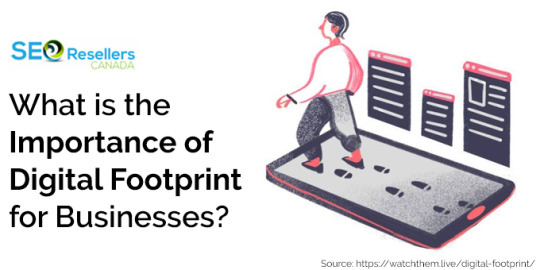#DigitalFootprints
Explore tagged Tumblr posts
Text
Best Digital Agency in Australia

The economy is heading towards a digital path-breaker. If your business still doesn't have digital footprints it might take you far back in the race. Call us on +675 7556 2793 / +675 7042 7155 and let us guide you on how to go digital with your business.
#SEO#SearchEngineOptimization#DigitalFootprints#DigitalMarketing#small#MediumBusiness#papuanewguinea#digitalmarketingpng
0 notes
Text
The Ultimate Loser's Guide: How to Be a Troll and Waste Your Life Online

Welcome to the Loser's Lounge! If you're here, congratulations! You've mastered the art of being utterly irrelevant online. Let's make sure you really are the troll you aspire to be. Buckle up, buttercup, here's your self-destruction manual:
Champion of Unsolicited Garbage
Ever start with "I'm not sure where you stand, but..." to proudly display your ignorance?
Is your life goal to spread your unasked-for trash opinions everywhere?
Devil’s Annoying Advocate
Do you pop into conversations with "Just playing devil’s advocate here..." because you actually enjoy being obnoxious?
Are you addicted to derailing discussions for your sadistic pleasure?
Olympic Gold Medalist in Missing the Point
Do you find joy in spectacularly missing the point, then running with it?
Are your arguments so off-base that they’re not even wrong?
Straw Man Sculptor
Love building straw men because actual arguments scare you?
Do you put words in people’s mouths because your own words are just too dumb?
Projectionist of the Year
Are you accusing others of your own failings so often you forget they’re yours?
Is your game so weak that projection feels like your only move?
Epiphany Generator (Defective)
Are your ‘epiphanies’ more like brain farts that nobody wants to smell?
Do you think you’re deep when you’re really just standing in a puddle?
Troll Enthusiast
Is "I can't wait to troll" your battle cry in a sad war against common sense?
Does ruining days give you a sense of achievement because, well, you've got nothing else going on?
Backhanded Compliment Giver
Is your idea of a compliment "You’re smarter than you look"?
Does every compliment have to be a slap in the face?
Delusional Strategist
Do you think you're a chess master in a world playing checkers, but really you're just eating the pieces?
Are you living in a fantasy where you’re always five steps ahead, but somehow always lose?
Keyboard Warrior Extraordinaire
Is your bravery immense in the comments but non-existent IRL?
Do you think your online hate doesn’t stink up real lives?
Final Reflection: If you’ve ticked off these boxes, you might be the kind of troll who lives under the internet bridge, scaring no one but yourself. Consider this your wake-up call: the only thing you're winning at is losing. Maybe, just maybe, it's time to shut down the computer, step outside, and find a hobby that doesn’t involve being a public nuisance. Or don't, and continue being the punchline of the internet's jokes. Your call, genius.
Remember, every minute you spend trolling is a minute you’re not getting back—a minute you could have spent not being a monumental disappointment.
👾 Tired of internet trolls? Let's expose their antics! 🎭
Reblog👊
If you think it's time to turn the tables and shine a light on online negativity. Follow us for more eye-opening content on how to combat cyber nuisances! #EndTrollCulture
⚖️ LEGAL DISCLAIMER: This post is written for the purpose of artistic expression, cultural commentary, and psychological exploration of social and gender dynamics. It does not condone or encourage violence, harassment, or discrimination of any kind. Any references to power, strength, restraint, or critique are metaphorical, symbolic, and rooted in historical and cultural analysis. This is not a call to action — it’s a cultural mirror. If you feel offended, ask yourself if it’s from actual harm — or from seeing something you hoped no one would say out loud.
✨ TL;DR: If you're mad, it’s probably not because it’s wrong — it’s because you know it’s true.
#InternetTrolls#CyberBullyingAwareness#DigitalWellbeing#MemeCulture#SocialMediaSafety#CombatOnlineHate#ViralContent#OnlineCommunity#MentalHealthAwareness#StandAgainstBullying#TrollingIsNotFunny#KeepItCleanOnline#HealthyInternetHabits#StopCyberBullying#DigitalFootprint#viral#funny#share#truthbombs#please share#funny stuff#funny post#trolls#feminism#lgbtq#lgbtqia#lgbtq community
2 notes
·
View notes
Text

SEO Resellers Canada has helped hundreds of clients establish a powerful digital footprint, helping them increase sales and funnel more leads. https://seoresellerscanada.ca/accelerate-your-seo-results-with-these-8-on-page-tactics/
0 notes
Photo

Review your online presence. Make sure it reflects your professional brand. #SocialMedia #PersonalBranding Your online presence is your digital resume. Make a great first impression.
#SocialMedia#PersonalBranding#DigitalFootprint#Professionalism#yourDEES#DEEmploymentSolutions#BlackOwnedBusiness#BlackNonprofit#SupportSmallBusiness
0 notes
Text
Exploring Snoopreport Features: What You Need to Know
Discover the key features of Snoopreport and how it helps track social media activity. In this guide, we’ll explore its functionality, accuracy, and benefits for users looking to monitor interactions. Learn how Snoopreport works, its reporting capabilities, and whether it’s the right tool for your needs.
#Snoopreport#SocialMediaMonitoring#ActivityTracker#SocialMediaInsights#OnlineBehavior#UserEngagement#SocialMediaAnalytics#InfluencerTracking#ProfileAnalysis#DigitalFootprint
0 notes
Text
Google Uses You
We’ve all been there. You’re in a rush, need an answer, and instinctively type your question into Google. A wealth of information is served to you in seconds, making your life easier and more efficient. We like to think that we’re using Google for our benefit, but what if I told you that Google is actually using you a lot more than you’re using it?
That might sound a bit conspiratorial, but it’s not far from the truth. The Google ecosystem is deeply integrated into almost every facet of our online experience. It isn’t just a search engine—it’s a data-gathering juggernaut that shapes, influences, and profits from our behaviors in ways most of us aren’t even aware of.
Data Is The New Currency
First, let’s break down a basic fact: in the digital world, data is king. Companies want to know everything about you—your habits, preferences, interests, and even your deepest fears (hello, targeted ads). Google is sitting at the top of this empire, collecting data from an almost unimaginable number of sources.
Every time you search for something, Google learns a little more about you. It tracks the keywords you use, the websites you click on, and even the amount of time you spend looking at certain content. And that’s just the tip of the iceberg.
How Google Tracks You
Google’s influence stretches far beyond its search engine. Whether you’re watching YouTube, checking Gmail, using Google Maps, or browsing with Chrome, Google is collecting data on you. This data includes:
1. Location Information: Google knows where you are at all times. Whether through Google Maps or your phone’s GPS, it tracks your every move. It uses this data to refine location-based advertising and suggest businesses or services nearby.
2. Search Habits: Google logs every search you make. From the mundane “best pizza in town” to the more personal “how to deal with stress,” each search reveals something about your personality, your needs, and your desires. This information is stored indefinitely and used to improve ad targeting.
3. Browsing History: If you’re using Chrome or are logged into a Google account while browsing, Google knows every site you visit. Even if you aren’t using a Google product directly, many websites use Google Analytics to track your visits. They can tie this data to your unique user profile, building a more complete picture of your online habits.
4. Email Content: It may sound unnerving, but Google’s AI scans the content of your emails. While this might be used to improve services or help you schedule calendar appointments, it also serves the primary purpose of making their advertising more precise.
5. Google Assistant: Google’s AI-powered virtual assistant listens to your voice and interprets your commands, but it’s also processing your voice data to better understand your patterns of speech, your needs, and, ultimately, how to serve you ads.
The Real Purpose: Advertising
So, what is Google doing with all this data? The answer is simple: advertising. In fact, over 80% of Google’s revenue comes from advertising. All those seemingly innocuous moments—searching for a restaurant, watching a YouTube video, or navigating through your emails—are meticulously analyzed to create a more detailed profile of you. With this profile, Google can target ads with a level of precision that’s almost unnerving.
Ever wonder how ads seem to follow you around the web? That’s Google’s algorithm at work. The more data it collects, the better it gets at predicting what you might buy, where you might go, and what services you might need. The more you interact with Google, the more it learns about you. But here’s the kicker: you don’t have to interact directly with Google at all. Many of the sites you visit use Google’s advertising or analytics services, so Google can track you even when you aren’t on a Google product.
The “Free” Services Trap
Google offers many services for free—search, email, maps, storage. And while we often marvel at how convenient and helpful these tools are, the old adage holds true: If you aren’t paying for the product, you are the product. In exchange for using these “free” services, you’re giving Google access to your personal data, which is far more valuable than a monthly subscription fee.
Every click, search, and keystroke you make within the Google ecosystem feeds the algorithm, refining your profile and making it easier for advertisers to reach you.
Can You Escape?
Realistically, completely opting out of Google’s reach is difficult in today’s interconnected world. You would need to use a different search engine (such as DuckDuckGo), avoid Gmail and Google Drive, stop using Chrome, and block Google Analytics on every site you visit. Even then, your smartphone may still be feeding Google location data and app usage statistics.
That said, there are ways to limit how much Google tracks you. Regularly clearing your search history, browsing in incognito mode, and disabling location services can reduce the amount of data you give away. Using privacy-focused apps and browsers is another step toward maintaining control over your data.
When we talk about how we “use” Google, we tend to think of the benefits we gain from its many services. And while those services are undoubtedly helpful, the reality is that Google is using us far more than we use it. It leverages the vast amounts of data we provide—whether knowingly or not—to fuel an enormous advertising engine, turning our digital lives into a currency it can trade.
So, the next time you fire up a Google search or open your Gmail, remember that the convenience you enjoy comes at a cost: your privacy. The power dynamic isn’t quite what it seems. Google isn’t just a tool we use—it’s a tool that’s using us.
This is something worth thinking about. What do you think about the trade-off between convenience and privacy?
#Google#Privacy#DataTracking#DigitalPrivacy#DataMining#BigTech#Advertising#GoogleTracking#UserData#InternetPrivacy#TargetedAds#GoogleServices#TechAwareness#OnlineTracking#DigitalFootprint#FreeServices#SurveillanceEconomy#TechTransparency#DataSecurity#OnlinePrivacyTips#new blog#today on tumblr
0 notes
Text
3 Websites Making Your Data Public Right Now
Numblookup.com
Family now.com
True finder.com
Deleteme can help scrub everything
0 notes
Text
Discover Python's potential for data science with our in-depth course. The basis for your exploration of the ever-evolving field of data analytics is provided by this module. Regardless of your level of experience with Python, this course offers a comprehensive examination of fundamental computational and programming ideas.
To learn about our upcoming courses with mandatory capstone projects, please visit https://unp.education/ or reach out to us at [email protected].
#UnpEducation#PythonDataScience#DataAnalyticsCourse#PythonProgramming#DataScienceFundamentals#CapstoneProject#PresentationSkills#DigitalFootprint#BlockchainCertificate#EffectiveLearning#Mentorship
1 note
·
View note
Text
How to Track Your Digital Footprint: A Simple Guide 🌐✨
In today’s digital age, every click, post, and like leaves a mark on the internet, forming what we call your digital footprint. Understanding this footprint is essential for your privacy, reputation, and even job opportunities. Let’s dive into how to track and manage your digital presence step by step!
What Is a Digital Footprint?
A digital footprint is the trail of information you leave online. Think of it as a path in the sand! There are two main types:
Active Digital Footprint: Data you share intentionally (like posting a pic on Instagram).
Passive Digital Footprint: Data collected without your direct input (like website cookies tracking your visits).
Knowing these helps you focus your tracking efforts.
Step 1: Search for Yourself Online 🔍
Use a Search Engine: Open Google.
Type in Your Name: Add details like your city or job title for better results.
Review the Results: Anything surprising?
Tips:
Try variations of your name.
Use quotes for exact matches.
Step 2: Check Your Social Media Accounts 📱
List All Accounts: Note every platform you use.
Review Profiles: Look for old posts or private info.
Adjust Privacy Settings: Control who sees your stuff.
Why It Matters:
Control Your Audience: You choose who sees what.
Avoid Unwanted Attention: Fewer unsolicited messages.
Step 3: Look at Other Online Accounts 💻
List All Accounts: Include emails, shopping sites, forums.
Check Privacy Settings: Review them all.
Delete Old Accounts: Get rid of accounts you no longer use.
Benefits:
Less Risk: Fewer accounts mean less exposure.
Easier Management: Simplify your online presence.
Step 4: Use Tools to Analyze Your Footprint 🛠️
Google Alerts: Set alerts for your name.
Reputation Management Tools: Services like BrandYourself help manage your online image.
Privacy Checkup Tools: MyPermissions helps review app access.
Why Use These?
Stay Informed: Know your online presence.
Protect Your Privacy: Regular checks alert you to unauthorized access.
Step 5: Regularly Monitor Your Digital Footprint 📅
Set Reminders: Schedule regular checks, maybe every few months.
Stay Updated: Keep up with changes in privacy policies.
Benefits of Monitoring:
Quick Response: Address issues promptly.
Ongoing Awareness: Stay informed.
Step 6: Practice Good Digital Hygiene 🧼
Think Before You Post: Consider how it might be perceived later.
Limit Personal Sharing: Be cautious with what you share.
Use Strong Passwords: Protect accounts with complex passwords and two-factor authentication.
Why It Matters:
Prevents Hacking: Strong security reduces identity theft risks.
Maintains Control: Keep your info private to shape your narrative.
Step 7: Educate Yourself About Data Privacy 📚
Learn About Data Tracking: Understand how websites track you.
Know Your Rights: Research local data privacy laws.
Consider Using a VPN: Protect your online activity, especially on public networks.
Importance of Education:
Empowerment: Knowledge helps you protect yourself.
Advocacy: Stay informed to advocate for your rights.
Step 8: Clean Up Your Digital Footprint 🧹
Delete or Update Content: Remove or revise negative info.
Share Positive Content: Promote what reflects your current interests.
Final Thoughts on Cleanup:
Take Control: Shape your online identity.
Build a Positive Presence: Regularly share good content to overshadow negatives.
Conclusion
Tracking your digital footprint is essential for managing your online presence and protecting your privacy. By following these steps—searching for yourself, reviewing social media, using tools, and practicing good hygiene—you can control what information is out there about you.
For a more detailed exploration, check out my blog: How to Track Your Digital Footprint: A Simple Guide. Remember, your digital footprint reflects who you are—make sure it tells the right story! Regular monitoring and proactive management will help you navigate the online world with confidence. 🌟
#DigitalFootprint#Privacy#OnlineSafety#SocialMedia#DigitalHygiene#DataPrivacy#ReputationManagement#OnlineIdentity#Cybersecurity#PersonalBranding
1 note
·
View note
Text

A strong online presence is crucial for attracting new patients. DigiDental provides comprehensive digital marketing services, including website design, SEO, and Google Ads management. 🌐🦷
Our goal is to make your practice easily discoverable and appealing to potential patients. 🔍✨
Let’s work together to enhance your digital footprint and grow your practice. 🚀🌟 Call us on ☎ 0415 188 959
#DigiDental#OnlinePresence#WebsiteDesign#SEO#GoogleAds#DigitalFootprint#PracticeGrowth#DentalMarketing#AttractNewPatients#Discoverable
0 notes
Text
What is the privacy risk of new tech?
New technology often brings various privacy risks, which can arise from how personal data is collected, stored, shared, and used. Here are some key privacy risks associated with new tech:
1.Data Collection and Surveillance
Over-Collection of Data: Many new technologies collect more data than necessary, often without the user’s explicit consent. This includes location data, browsing history, and personal preferences.
Mass Surveillance: Technologies like facial recognition, AI-driven analytics, and IoT devices can enable mass surveillance, where individuals are constantly monitored without their knowledge.
2. Data Breaches
Increased Vulnerability: As more personal data is stored digitally, the risk of data breaches increases. Hackers can exploit vulnerabilities in new tech, leading to unauthorized access to sensitive information like financial data, health records, and personal communications.
Lack of Strong Security Measures: Some new technologies may lack robust security measures, making them prime targets for cyberattacks.
3. Data Misuse
Profiling and Targeting: Companies may use personal data to create detailed profiles of users, which can be used for targeted advertising, manipulation, or discrimination. This can lead to invasive marketing practices and unfair treatment.
Third-Party Sharing: Data collected by one service is often shared with or sold to third parties without the user’s knowledge or consent, leading to privacy breaches.
4. Lack of Transparency and Control
Opaque Privacy Policies: Many tech companies have complex and unclear privacy policies, making it difficult for users to understand how their data is being used.
Limited User Control: Users often have limited control over their data, including who can access it, how it is used, and how long it is stored.
5. AI and Machine Learning Risks
Bias and Discrimination: AI systems can unintentionally perpetuate biases present in training data, leading to discriminatory practices, especially in areas like hiring, lending, and law enforcement.
Automated Decision-Making: Automated systems may make decisions about individuals without their input, which can affect their privacy and personal freedoms.
6. IoT Devices
Insecure Devices: Many Internet of Things (IoT) devices lack strong security measures, making them vulnerable to hacking and unauthorized access.
Continuous Data Collection: IoT devices often collect data continuously, creating detailed profiles of users' habits, preferences, and daily routines.
7. Emerging Technologies
Quantum Computing: The development of quantum computers poses a future risk to current encryption methods, potentially exposing encrypted data to unauthorized access.
Blockchain Technology: While blockchain offers enhanced security, the immutability of data can be a double-edged sword, as once data is recorded, it cannot be easily altered or deleted, leading to potential privacy issues.
8. Social Engineering and Phishing
Manipulation: New technologies may be exploited to create more sophisticated phishing attacks and social engineering schemes, tricking users into revealing personal information.
Regulatory and Legal Risks
Cross-Border Data Transfers: As data moves across borders, it may be subject to different privacy laws and regulations, complicating the protection of personal information.
Legal Compliance: Rapidly evolving technologies may outpace existing privacy laws, leading to gaps in legal protections.
9. Mitigating Privacy Risks:
Strong Encryption: Ensuring data is encrypted both in transit and at rest.
User Education: Educating users about the privacy risks associated with new technologies and how to protect themselves.
Privacy-by-Design: Incorporating privacy features into the design of new technologies from the outset.
Regulation and Oversight: Governments and organizations should create and enforce regulations that protect user privacy.
Understanding and addressing these privacy risks is essential for maintaining trust and protecting individuals in an increasingly connected world.
#DataCollection#Surveillance#DataBreach#DataMisuse#LackOfTransparency#IoTPrivacy#AIrisks#RegulatoryChallenges#Cybersecurity#UserControl#DigitalFootprint#PrivacyByDesign
0 notes
Text
Is jax a top or a lanky twink
I am so never gonna get a job lmao

Alright you filthy farm animals, come and eat your slop!
32K notes
·
View notes
Photo

Review your online presence. Make sure it reflects your professional brand. #SocialMedia #PersonalBranding Your online presence is your digital resume. Make a great first impression. #DigitalFootprint #Professionalism #DEEmploymentSolutions #CareerCoach #CareerCounseling #ResumeWriter #InterviewPrep #InterviewCoach #JobApplication #Employment #Jobs #JobSearchStrategies #yourDEES #LetsGetToWork #BlackOwnedBusiness #SupportSmallBusiness https://qrco.de/bbfVL1
#SocialMedia#PersonalBranding#DigitalFootprint#Professionalism#DEEmploymentSolutions#CareerCoach#CareerCounseling#ResumeWriter#InterviewPrep#InterviewCoach#JobApplication#Employment#Jobs#JobSearchStrategies#yourDEES#LetsGetToWork#BlackOwnedBusiness#SupportSmallBusiness
0 notes
Text

Choose SEO Resellers Canada for reselling content writing and directory citations. https://seoresellerscanada.ca/enhance-your-digital-footprint-with-the-help-of-an-seo-agency/
#DigitalFootprint#SEOAgency#DigitalMarketing#SearchEngineOptimization#SEOServices#OnlineMarketing#SEOCanada
0 notes
Text
What is digital literacy in the age of technology?

In today's technology-driven world, digital literacy is an essential skill set. It encompasses the ability to effectively and critically navigate, evaluate, and create information using a range of digital platforms. Beyond basic computer skills, digital literacy involves understanding how to communicate online, use digital tools for problem-solving, and maintain digital privacy and security.
As technology evolves, so does the definition of digital literacy. It now includes proficiency with social media, understanding the implications of digital footprints, and the ability to discern credible sources from misinformation. For students and professionals alike, digital literacy fosters better collaboration, innovation, and productivity. In essence, being digitally literate means not just using technology, but leveraging it to enhance learning, work, and daily life, ensuring that individuals can thrive in an increasingly digital society.
0 notes
Text
Age of Screens
In the vast landscape of the internet, where every keystroke leaves a trace and every click builds a profile, the notion of privacy feels like a distant memory. Our digital footprints, once imprinted, seem etched in stone, subject to scrutiny by algorithms and unseen eyes. We navigate this virtual realm with a sense of caution, aware that our online actions are forever archived, waiting to be dissected and analyzed.
Yet, amidst this digital labyrinth, another phenomenon unfolds—one where our obsession with screens threatens to eclipse the very essence of human connection. In the pursuit of virtual validation, we find ourselves tethered to our devices, oblivious to the world unfolding around us.
Consider the scene of a typical outing with loved ones. Amidst the laughter and shared moments, there lurks a silent intruder: the smartphone. As conversations ebb and flow, so too does our attention, drawn inexorably towards the glowing screens in our palms. It's a paradox of modernity—we seek connection through technology, only to find ourselves distanced from the present moment.
I recently found myself pondering this paradox during a date with my girlfriend. As we engaged in animated conversation, I couldn't help but notice the sea of faces around us, each illuminated by the soft glow of their phones. It was a sobering realization—that in our quest for digital connection, we risk losing touch with the tangible world and the people who inhabit it.
The irony is palpable. In an age defined by connectivity, we find ourselves increasingly disconnected from one another. The very tools designed to bring us closer together often serve as barriers, insulating us from the richness of human interaction.
But why? What drives this insatiable urge to immerse ourselves in the digital realm at the expense of real-world connections? Perhaps it's the allure of instant gratification, the dopamine hit of a new notification, or the illusion of productivity perpetuated by endless scrolling. Whatever the reason, the consequences are profound—a gradual erosion of empathy, understanding, and genuine human connection.
So, where do we go from here? How do we reclaim our humanity in a world dominated by screens and algorithms? The solution lies not in eschewing technology altogether but in cultivating a mindful approach to its usage. It requires us to embrace moments of digital detox, to consciously disengage from the virtual noise and reacquaint ourselves with the beauty of the present moment.
Moreover, it necessitates a reevaluation of our priorities—a recognition that true fulfillment stems not from likes or retweets but from meaningful relationships and authentic connections. It's about fostering a culture of presence, where the simple act of being together transcends the confines of pixels and screens.
As I pen these thoughts, I am reminded of the profound potential of the human spirit—to adapt, to evolve, and to forge genuine connections in the face of technological encroachment. The path ahead may be fraught with challenges, but it is also brimming with opportunity—the opportunity to reclaim our humanity, one conversation, one moment of presence at a time.
#DigitalAge#Technology#HumanConnection#DigitalDetox#ScreenTime#SocialMedia#VirtualValidation#ModernLife#Mindfulness#Presence#Relationships#TechImpact#Disconnect#OnlineBehavior#DigitalFootprint#TechEthics#InternetCulture#SocialObservation#DigitalInfluence#RealWorldConnections#today on tumblr
0 notes